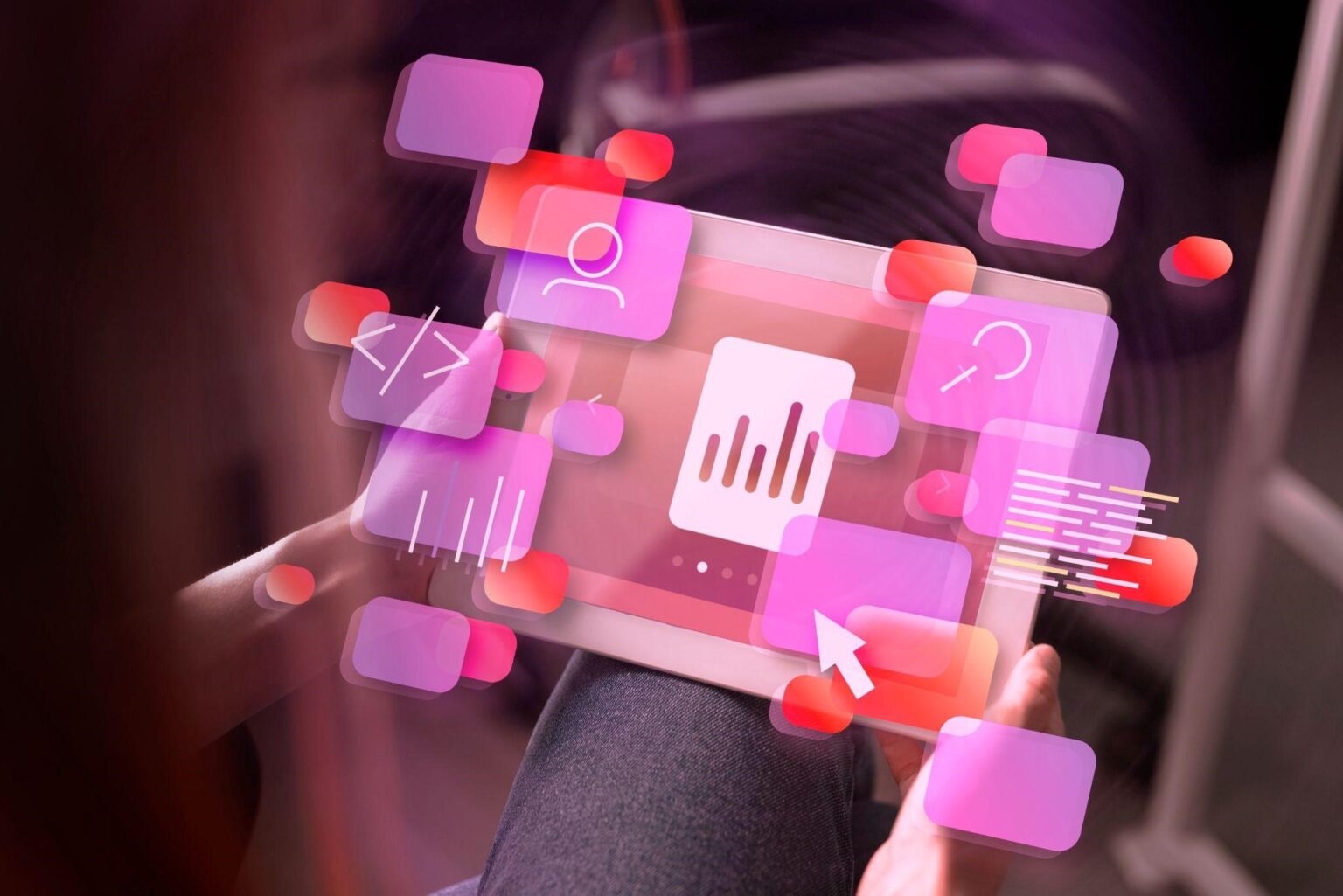In today’s fast-paced digital world, traditional SMS marketing alone isn’t enough to keep customers engaged. With AI-driven technologies reshaping how businesses interact with their audience, companies that fail to adapt risk falling behind.
Imagine sending messages that predict customer needs, personalize content in real-time, and optimize engagement automatically—all without extra manual effort.
The future of SMS marketing is here, and AI is at its core. In this guide, we’ll explore actionable steps to future-proof your SMS strategy, ensuring you stay ahead of the competition and maximize customer connections in a rapidly evolving landscape.
The Current State of AI in SMS Marketing
AI has transformed SMS marketing by enabling businesses to deliver highly personalized and automated messaging experiences. Here’s how AI is being used today:
- Personalization at Scale: AI analyzes customer data to craft tailored messages, improving engagement and conversion rates.
- Automation of Repetitive Tasks: AI streamlines tasks such as scheduling messages and segmenting audiences, reducing manual effort and increasing efficiency.
Benefits Businesses Are Already Experiencing
Companies leveraging AI in SMS marketing are seeing significant improvements, including:
- Enhanced Customer Engagement: AI-driven messaging ensures timely, relevant, and compelling interactions with users.
- Improved Campaign Efficiency and ROI: Automation optimizes campaign performance, leading to better returns on investment.
However, the rise of AI in SMS marketing has also led to concerns, such as SMS bombing, where automated systems are misused to send excessive messages. Businesses must implement responsible AI strategies to avoid spam-like behaviors and ensure positive customer experiences.
Key Trends Shaping the Future of AI in SMS Marketing
AI is revolutionizing SMS marketing, making it more dynamic, personalized, and efficient. As technology advances, new trends are shaping the way businesses interact with customers through text messaging. Here’s a closer look at the most influential AI-driven trends in SMS marketing today.
1. Hyper-Personalization
Personalization has always been crucial in marketing, but AI is taking it to the next level with hyper-personalization. Machine learning analyzes vast amounts of customer data, including preferences, past interactions, and behaviors, to create highly customized messaging.
- AI-driven SMS marketing can tailor messages in real-time based on user engagement.
- Businesses can personalize offers, reminders, and product recommendations, increasing conversion rates.
For example, a retail brand might send exclusive offers to customers who frequently browse a particular category. In the future, real-time personalization during customer interactions could further enhance engagement, ensuring every SMS is relevant and impactful.
2. Natural Language Processing (NLP)
NLP is a game-changer for conversational AI in SMS marketing. By understanding and interpreting human language, AI-powered chatbots and automated responses create seamless interactions.
- Chatbots can handle real-time customer support via SMS.
- AI can generate dynamic responses based on customer queries, improving engagement.
A travel agency, for instance, could use NLP to assist customers in booking flights via text messages. This eliminates the need for human intervention while enhancing the customer experience.
3. Predictive Analytics
AI doesn’t just react to customer behavior—it predicts it. Predictive analytics use historical data and machine learning models to anticipate customer needs and send timely, relevant messages.
- Abandoned cart reminders can encourage customers to complete their purchases.
- Upselling opportunities arise when AI predicts which products or services a customer might need next.
For example, a telecom company could use AI to predict when a customer’s data plan is about to expire and send a renewal offer at the perfect time, maximizing customer retention.
4. Integration with Emerging Technologies
AI in SMS marketing isn’t limited to text-based interactions—it’s integrating with cutting-edge technologies like augmented reality (AR) and the Internet of Things (IoT) to create interactive campaigns.
- Businesses can send AR-enabled product demos via SMS, allowing customers to visualize items in real-world settings.
- IoT devices can trigger automated SMS updates, such as maintenance reminders for smart home gadgets.
Imagine receiving an SMS with an AR preview of how a piece of furniture would look in your home before making a purchase. This kind of innovation can drastically improve customer confidence and sales.
5. AI-Powered Video SMS
Another emerging trend is AI-powered video SMS, where brands send personalized video messages to increase engagement.
- Real estate agents can send virtual home tours via SMS to prospective buyers.
- E-commerce brands can showcase customized product recommendations in video format.
Personalized video messages help businesses stand out and create a stronger emotional connection with customers, leading to higher engagement and sales.
The future of AI in SMS marketing is filled with exciting possibilities. From hyper-personalization and predictive analytics to AI-powered chatbots and video SMS, businesses are leveraging AI to create more innovative, more effective marketing campaigns.
AI’s impact isn’t limited to customer engagement—it also plays a crucial role in service revenue management, helping businesses optimize revenue through data-driven decision-making. However, as AI-powered messaging evolves, ethical considerations such as SMS bombing must be addressed to ensure the responsible use of automation in marketing.
Practical Applications of AI in SMS Marketing
AI is revolutionizing SMS marketing by making campaigns more targeted, efficient, and interactive. Businesses leveraging AI can optimize messaging strategies, improve customer engagement, and maximize returns. Below are some practical applications of AI in SMS marketing.
1. Audience Segmentation
AI refines audience segmentation by analyzing demographics, behavior patterns, and user preferences. Traditional segmentation methods rely on broad categories, but AI enables highly specific targeting.
- AI-powered tools categorize users based on past interactions, purchase history, and engagement levels.
- Businesses can create detailed customer personas for precise marketing strategies.
For example, an online fashion retailer can use AI to segment customers who frequently buy sneakers and send them exclusive sneaker-related promotions.
Actionable tip: Use AI tools to build dynamic customer profiles and adjust campaigns in real-time for better engagement.
2. Automated Campaign Management
AI-driven automation streamlines SMS marketing by managing message scheduling, tracking performance, and optimizing delivery times.
- AI determines the best time zones and peak engagement hours for SMS delivery.
- Businesses can automate follow-up messages based on customer responses.
For instance, a global e-commerce platform can use AI to send promotional messages at different times based on when customers are most likely to check their phones. This increases open rates and conversions, improving the efficiency of AI-powered advertisement for ROI by reducing wasted marketing spend.
Example: A food delivery app can send automated SMS reminders about discount offers during lunch and dinner hours when customers are most likely to order.
3. Chatbots for Customer Support
AI-powered chatbots integrated into SMS platforms enhance customer support by providing instant responses and personalized assistance.
- Chatbots handle FAQs, order tracking, and appointment scheduling via SMS.
- AI-driven responses ensure customers receive accurate information without human intervention.
For example, a telecom company can deploy an SMS chatbot that helps customers check data usage, upgrade plans, and troubleshoot network issues—all through simple text messages.
Actionable tip: Implement NLP-powered chatbots to automate customer support, handle order updates, and improve response efficiency.
By incorporating AI into audience segmentation, automated campaign management, and chatbot-driven customer support, businesses can significantly enhance engagement and conversion rates while optimizing their SMS marketing strategies.
Actionable Steps to Future-Proof Your SMS Strategy with AI
- Invest in an AI-powered SMS platform
- Gain access to robust analytics for tracking engagement and automating responses.
- Use AI to predict customer behavior and personalize messaging.
- Train your marketing team on AI tools
- Educate them on automation, sentiment analysis, and AI-driven personalization.
- Ensure they can leverage AI effectively for campaign success.
- Adapt to emerging trends
- Incorporate AR-enhanced messaging and video-based SMS to boost engagement.
- Stay ahead by integrating the latest AI-driven innovations.
- Leverage predictive analytics for continuous optimization
- Analyze past campaign performance to refine future strategies.
- Use AI insights to improve response rates and maximize conversions.
A proactive, AI-driven SMS strategy ensures your business stays competitive and future-proof.
Conclusion
As AI continues to evolve, its potential to transform SMS marketing is immense. From hyper-personalization to AI-powered video messages, the future promises smarter, more efficient campaigns.
Businesses that adopt AI-driven strategies, such as predictive analytics and NLP, will gain a competitive edge by delivering more relevant and timely messages.
However, it’s crucial to balance automation with authenticity and ensure compliance with data privacy regulations.
By staying ahead of these trends and effectively utilizing AI tools, companies can future-proof their SMS marketing strategies and significantly enhance engagement, driving customer satisfaction and ROI.
Want more insights? Keep visiting Lotology for the latest updates and information!

